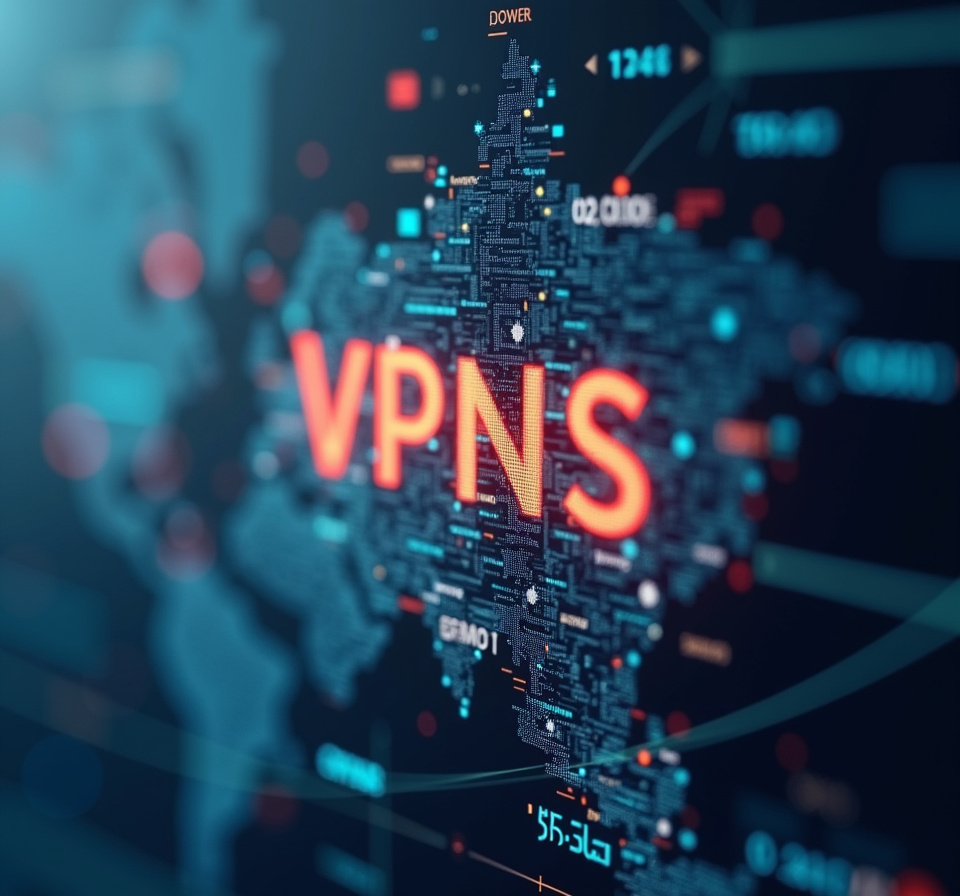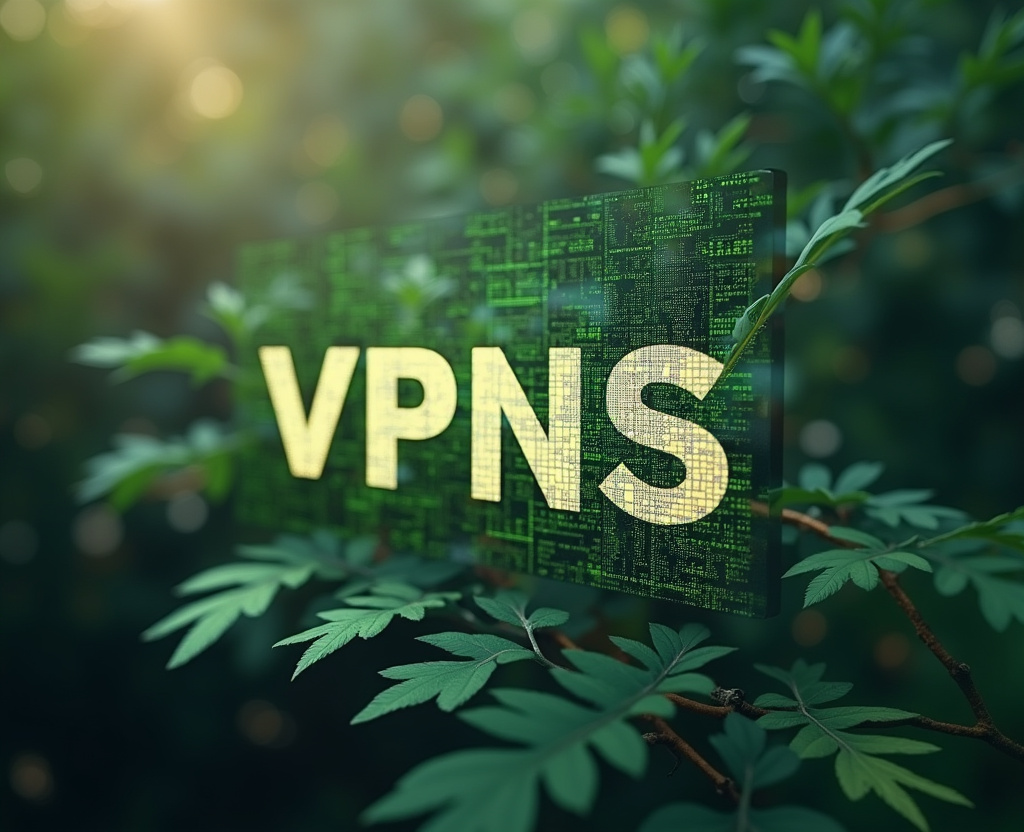VPNs for Travel Agencies: Securing Client Itineraries

Table of Contents
Protecting Client Data: Why Travel Agencies Need VPNs
In the dynamic world of travel, where seamless experiences and personalized itineraries are paramount, travel agencies face a growing threat: the vulnerability of sensitive client data. The sheer volume of personal details handled daily – from passport information and credit card numbers to intricate travel plans and accommodation preferences – makes these agencies prime targets for cybercriminals. A single data breach can trigger a cascade of negative consequences, including financial losses stemming from fraudulent transactions and legal battles, irreparable damage to the agency's reputation, and a significant erosion of hard-earned client trust.
Proactive cybersecurity measures are no longer optional embellishments; they are fundamental necessities for survival and sustained success in today's digital landscape. One of the most effective and readily deployable tools in a travel agency's security arsenal is a Virtual Private Network (VPN). A VPN acts as an impenetrable shield, creating a secure, encrypted tunnel that protects data as it travels between the travel agency's devices and the vast expanse of the internet.
This encrypted connection effectively renders sensitive information unreadable to any unauthorized parties who may attempt to intercept it. The importance of this protection is magnified when employees are working remotely, connecting through potentially unsecured public Wi-Fi networks in airports, hotels, or cafes, or accessing critical client information from branch offices dispersed across different geographical locations. Under these circumstances, a VPN provides an essential layer of defense against cyber threats.
The application of a 'travel agency VPN' directly addresses the inherent security anxieties woven into the fabric of the industry. By encrypting all internet traffic, a VPN guarantees that even if a determined hacker manages to intercept data in transit, the information will be rendered unintelligible without the unique decryption key. This all-encompassing protection bubble extends to a broad spectrum of mission-critical activities, including accessing and managing confidential client databases, securely processing payments with vendors and service providers, communicating sensitive information with airlines, hotels, and other travel partners, and efficiently managing online bookings through various reservation systems.
Furthermore, a VPN effectively masks the travel agency's public IP address, adding another layer of security by making it significantly more difficult for cybercriminals to track the agency's online activities and launch targeted, customized attacks. This proactive step can deter potential attackers from even attempting to breach the agency's defenses. The paramount importance of 'itinerary security' cannot be overstated.
Travel itineraries are treasure troves of personal information, encompassing travel dates, destinations, hotel and flight booking details, unique identifying information like passport numbers, and even notes about personal preferences. If this highly sensitive data falls into the wrong hands, the consequences can be devastating, ranging from identity theft and financial fraud to harassment and even physical harm. A VPN provides a critical layer of protection, ensuring that itineraries are transmitted and stored securely, safeguarding clients from potential harm and protecting the agency from liability.
'Booking protection' is another crucial aspect of a robust travel agency security strategy. Online booking systems are consistently targeted by cybercriminals seeking to steal credit card details and other sensitive financial information. A VPN plays a vital role in preventing these attacks by encrypting the data transmitted between the travel agency's systems and the various booking platforms, severely complicating the efforts of hackers to intercept or steal sensitive payment information.
Moreover, a VPN facilitates a secure connection to payment gateways, guaranteeing that financial transactions are processed securely and that sensitive financial data remains protected throughout the process. At its core, protecting 'client data' is the foundation upon which any reputable travel agency builds its operations. Clients willingly entrust these businesses with their most personal information, and they rightly expect that data to be handled with the utmost care, discretion, and security.
By implementing a VPN and other robust security measures, a travel agency unequivocally demonstrates its unwavering commitment to data security, solidifying client trust and fostering lasting loyalty. A comprehensive and layered security strategy should also include mandatory employee training on cybersecurity best practices, regular and rigorous security audits, the implementation of unyielding password policies, and the use of multifactor authentication. Selecting the optimal 'VPN for travel' requires careful consideration of several pivotal factors, including the strength of the encryption protocols used, the speed and reliability of the connection, and the breadth and depth of the security features offered.
Travel agencies should prioritize VPNs that employ robust encryption protocols, such as Advanced Encryption Standard (AES) with a 256-bit or higher key length, and those that adhere to a strict no-logs policy, guaranteeing that they do not track, monitor, or store any user data. A VPN provider with a geographically diverse and expansive server network can also provide noticeably faster and more reliable connections, as well as the enhanced ability to bypass geographical restrictions on accessing content and booking platforms specific to certain regions. Ultimately, investing in a reliable and well-maintained VPN is not merely an expense; it is a strategic investment in the long-term security, reputation, and success of the travel agency.
Understanding the Risks: Cyber Threats Targeting Travel Itineraries
Beyond the fundamental function of data encryption, a VPN offers a comprehensive suite of additional advantages that significantly bolster a travel agency's overall security posture and operational efficiency. One crucial advantage is the ability to seamlessly bypass geographical restrictions and access content from different regions around the globe. This capability proves particularly beneficial for travel agencies that operate on an international scale or that need to access booking platforms, airline websites, or other travel resources that are exclusively available within specific countries.
By strategically connecting to a VPN server located in the relevant geographical region, travel agents can gain unrestricted access to these valuable resources without encountering any frustrating limitations or barriers. This streamlined access enhances the booking process, improves overall efficiency, and enables agents to provide more comprehensive and timely service to their clients. Another critical security feature offered by many VPNs is built-in protection against malware and phishing attacks.
These VPNs incorporate advanced security features designed to proactively block access to known malicious websites and prevent users from inadvertently downloading infected files. This functionality significantly reduces the risk of employees accidentally introducing malware into the agency's network, which could potentially compromise sensitive data or disrupt critical business operations. Phishing attacks represent a persistent and pervasive threat to travel agencies, as cybercriminals frequently employ deceptive tactics to trick unsuspecting employees into divulging their login credentials or other confidential information.
A VPN can effectively mitigate this risk by blocking access to known phishing websites and by encrypting the data transmitted over the internet, making it substantially more difficult for hackers to intercept usernames, passwords, and other sensitive credentials. This added layer of protection safeguards employee accounts and prevents unauthorized access to critical systems and data. Furthermore, a VPN provides a secure and reliable connection for remote workers, ensuring that their data remains protected even when they are working from home, traveling on business, or accessing company resources from other remote locations.
This is particularly relevant in today's increasingly mobile workforce, where employees are often accessing sensitive information from a diverse array of devices and networks. By mandating that employees connect to a VPN before accessing company resources, travel agencies can enforce a consistent security policy and ensure that data is always protected, regardless of the employee's location or the network they are using. The effective implementation of 'travel agency VPN' solutions should be seamlessly integrated with advanced threat detection systems.
These systems work in the background, continuously monitoring network traffic for suspicious activity and alerting security personnel to potential threats in real-time. By combining the protective capabilities of a VPN with sophisticated threat detection, travel agencies can establish a robust, multi-layered security approach that provides comprehensive protection against a wide range of cyberattacks. Regular and thorough security audits are also an indispensable element of maintaining a strong and resilient security posture.
These audits should meticulously identify any vulnerabilities in the agency's systems, processes, and configurations, and provide clear and actionable recommendations for mitigating those risks. While a VPN can effectively address certain vulnerabilities, it's essential to recognize that it is just one component of a comprehensive security strategy. Audits help to identify gaps in security practices and ensure that all aspects of the agency's infrastructure are adequately protected.
Ongoing employee training is paramount. Employees need to be educated about the ever-evolving risks posed by cyberattacks and thoroughly trained on how to identify and avoid phishing scams, malware infections, and other common threats. They should also receive comprehensive training on the proper usage of the VPN and the importance of consistently keeping their software and operating systems up to date with the latest security patches.
In the context of robust 'itinerary security', consider implementing a zero-trust security model. This approach operates on the principle that no user or device should be automatically trusted, regardless of their location or network affiliation. Under a zero-trust model, all users and devices must undergo rigorous authentication and authorization procedures before they are granted access to sensitive data or critical systems.
A VPN plays a crucial role in enabling a zero-trust approach by providing a secure and encrypted connection that ensures that only authorized users and devices can access sensitive resources, even when they are connecting from remote locations or untrusted networks.
VPN Implementation: Key Features for Travel Agency Security
Beyond the technical aspects of VPN implementation, travel agencies need to cultivate a security-conscious culture that permeates every level of the organization. This involves fostering a sense of shared responsibility for protecting client data and empowering employees to be vigilant in identifying and reporting potential security threats. Building this culture begins with leadership actively championing security initiatives and demonstrating a clear commitment to protecting client information.
This sets the tone for the entire organization and reinforces the importance of security as a core value. Regular communication and awareness campaigns can also play a vital role in educating employees about the latest cyber threats and best practices for staying safe online. These campaigns can utilize a variety of channels, including email newsletters, intranet postings, in-person training sessions, and even gamified security awareness exercises.
The goal is to keep security top-of-mind and encourage employees to adopt secure habits in both their professional and personal lives. When evaluating 'VPN for travel' solutions, agencies should pay close attention to the provider's security policies and incident response procedures. A reputable VPN provider should have a clearly defined and comprehensive security policy that outlines its commitment to protecting user data and maintaining the security of its infrastructure.
This policy should be readily available to customers and should be regularly updated to reflect the latest security threats and best practices. In addition, the VPN provider should have a well-defined incident response plan that outlines the steps it will take in the event of a security breach or other security incident. This plan should include procedures for identifying and containing the incident, notifying affected customers, and implementing corrective actions to prevent future incidents.
The choice of VPN server locations is also an important consideration for travel agencies. A VPN with a wide range of server locations can offer several advantages. First, it allows agencies to bypass geographical restrictions and access content from different regions, as discussed earlier.
Second, it allows agencies to choose a server location that is geographically close to their clients or partners, which can improve connection speeds and reduce latency. Third, it provides redundancy and failover capabilities, ensuring that agencies can maintain a stable and reliable connection even if one server location experiences an outage. Before deploying a VPN, travel agencies should conduct thorough testing to ensure that it is compatible with their existing systems and applications and that it meets their performance requirements.
This testing should include evaluating the VPN's impact on network speed, application performance, and overall user experience. It should also include testing the VPN's security features to ensure that they are functioning correctly and that they are effectively protecting data. Proper configuration of 'travel agency VPN' is also essential.
This includes configuring the VPN client software, setting up user accounts and permissions, and implementing strong password policies. Agencies should also consider implementing multi-factor authentication for VPN access, which adds an extra layer of security by requiring users to provide two or more forms of authentication before they can connect to the VPN. Monitoring and logging are also important aspects of VPN management.
Agencies should monitor VPN usage to identify any suspicious activity or unauthorized access attempts. They should also log VPN activity for auditing and compliance purposes. These logs can provide valuable information in the event of a security breach or other security incident.
From a 'booking protection' standpoint, it is worth noting that integrating the VPN with other security tools can create a synergistic effect. For example, integrating the VPN with a web application firewall (WAF) can provide enhanced protection against web-based attacks. Similarly, integrating the VPN with an intrusion detection system (IDS) can help to identify and prevent unauthorized access to sensitive data.
Finally, ensuring that the implemented 'itinerary security' measures are compliant with relevant regulations is crucial. Travel agencies often handle personal data that is subject to various privacy laws and regulations, such as the General Data Protection Regulation (GDPR) in Europe and the California Consumer Privacy Act (CCPA) in the United States. Failure to comply with these regulations can result in significant fines and penalties.
VPN for Services: Enhancing Security and Privacy
In the quest for robust 'client data' protection, travel agencies must also address the often-overlooked vulnerabilities associated with third-party vendors and partners. These entities, which may include online booking platforms, payment processors, cloud storage providers, and marketing automation tools, often have access to sensitive client data and can therefore pose a significant security risk. Travel agencies should conduct thorough due diligence on all third-party vendors to assess their security practices and ensure that they meet industry standards.
This due diligence should include reviewing the vendor's security policies, conducting security audits, and verifying compliance with relevant privacy regulations. Contractual agreements with third-party vendors should also include clear security requirements and liability clauses. These clauses should specify the vendor's responsibilities for protecting client data, as well as the consequences of a data breach or other security incident.
Agencies should also require vendors to provide regular security reports and to notify them immediately in the event of a security breach. Furthermore, travel agencies should limit the amount of client data that they share with third-party vendors to only what is strictly necessary for the business relationship. This principle of data minimization can help to reduce the agency's overall security risk.
Agencies should also consider using data masking or anonymization techniques to protect sensitive client data when sharing it with third-party vendors. Data masking replaces sensitive data with realistic but fictitious data, while anonymization removes all identifying information from the data. Implementing data loss prevention (DLP) solutions can also help to prevent sensitive client data from being accidentally or intentionally leaked to unauthorized third parties.
DLP solutions monitor network traffic and endpoint devices for sensitive data and can block or alert administrators when sensitive data is being transferred to unauthorized locations. Beyond technological solutions, travel agencies must also establish clear policies and procedures for managing third-party relationships. These policies should outline the steps that employees must take when working with third-party vendors, as well as the procedures for reporting security incidents involving third-party vendors.
Regular training sessions can help to ensure that employees are aware of these policies and procedures and that they understand the importance of protecting client data when working with third-party vendors. When considering a 'travel agency VPN' deployment, it's important to verify its compatibility with existing Customer Relationship Management (CRM) systems and booking platforms. Seamless integration can prevent disruptions in workflow and ensure consistent data protection across all systems.
Moreover, explore VPN solutions that offer features specifically designed for multi-user environments, such as centralized management consoles and granular access controls. These features can simplify VPN administration and help to ensure that only authorized users have access to sensitive data. From an 'itinerary security' standpoint, ensure that all itineraries are encrypted both in transit and at rest.
This includes encrypting itineraries stored on servers, laptops, and mobile devices. Encryption at rest protects the data even if a device is lost or stolen, while encryption in transit protects the data as it is being transmitted over the network. Continuously monitor the security landscape for emerging threats and vulnerabilities.
This requires staying up-to-date on the latest security news and trends, as well as regularly scanning systems and applications for vulnerabilities. Implementing a vulnerability management program can help to identify and prioritize vulnerabilities and to ensure that they are patched in a timely manner. Finally, remember that cybersecurity is an ongoing process, not a one-time project.
Travel agencies must continuously adapt their security measures to address the ever-evolving threat landscape. This requires regularly reviewing and updating security policies, conducting security audits, and training employees on the latest security best practices.
In conclusion, securing client itineraries and protecting sensitive data is not merely a compliance requirement for travel agencies; it is a fundamental building block for establishing trust, safeguarding reputation, and ensuring long-term business success. The increasingly sophisticated cyber threat landscape demands a proactive and multi-faceted approach to security, and a Virtual Private Network (VPN) stands out as an indispensable tool in the arsenal of any modern travel agency. The implementation of a 'travel agency VPN' should be viewed as a strategic investment, providing a robust and reliable layer of encryption that protects sensitive data from unauthorized access, both in transit and at rest.
By encrypting all internet traffic, a VPN shields client information, including itineraries, payment details, and personal preferences, from prying eyes and potential cybercriminals. Beyond encryption, a VPN offers a range of additional security benefits, such as the ability to bypass geographical restrictions, protect against malware and phishing attacks, and provide secure remote access for employees working from various locations. These features contribute to a more secure and efficient operating environment, allowing travel agencies to focus on providing exceptional service to their clients without having to constantly worry about the security of their data.
However, it is crucial to recognize that a VPN is just one piece of the puzzle. A comprehensive security strategy must also include other essential elements, such as employee training, regular security audits, strong password policies, multi-factor authentication, and data loss prevention measures. By combining a VPN with these additional security measures, travel agencies can create a layered defense that provides comprehensive protection against a wide range of cyber threats.
When selecting a 'VPN for travel,' agencies should carefully consider several factors, including the level of encryption, the speed and reliability of the connection, the server network, and the provider's security policies and incident response procedures. Reputable VPN providers offer strong encryption protocols, a strict no-logs policy, and a geographically diverse server network, ensuring that data is protected and connections are fast and reliable. From an 'itinerary security' perspective, consider implementing end-to-end encryption for all client communications.
This means that itineraries and other sensitive documents are encrypted on the sender's device and can only be decrypted by the intended recipient. End-to-end encryption provides an additional layer of security that protects data even if it is intercepted by unauthorized parties. Furthermore, consider implementing a data retention policy that specifies how long client data will be stored and when it will be securely deleted.
This policy should comply with all relevant privacy regulations and should be regularly reviewed and updated. From a 'booking protection' standpoint, travel agencies should implement measures to protect against fraudulent transactions and chargebacks. This includes using Address Verification System (AVS) and Card Verification Value (CVV) checks to verify credit card information, as well as monitoring transactions for suspicious activity.
Finally, fostering a security-conscious culture within the organization is paramount. Employees must be educated about the importance of protecting client data and trained on how to identify and avoid security threats. Regular security awareness training sessions can help to keep security top-of-mind and encourage employees to adopt secure habits in both their professional and personal lives.
In conclusion, protecting 'client data' is an ongoing responsibility that requires continuous vigilance and adaptation. By implementing a robust VPN solution and embracing a comprehensive security strategy, travel agencies can safeguard their clients' information, build trust, and maintain a competitive edge in today's dynamic and interconnected world. The investment in security is an investment in the future, ensuring the long-term viability and success of the travel agency in an increasingly challenging digital landscape.
Stay Updated
Get the latest VPN news, tips, and exclusive deals to your inbox.




